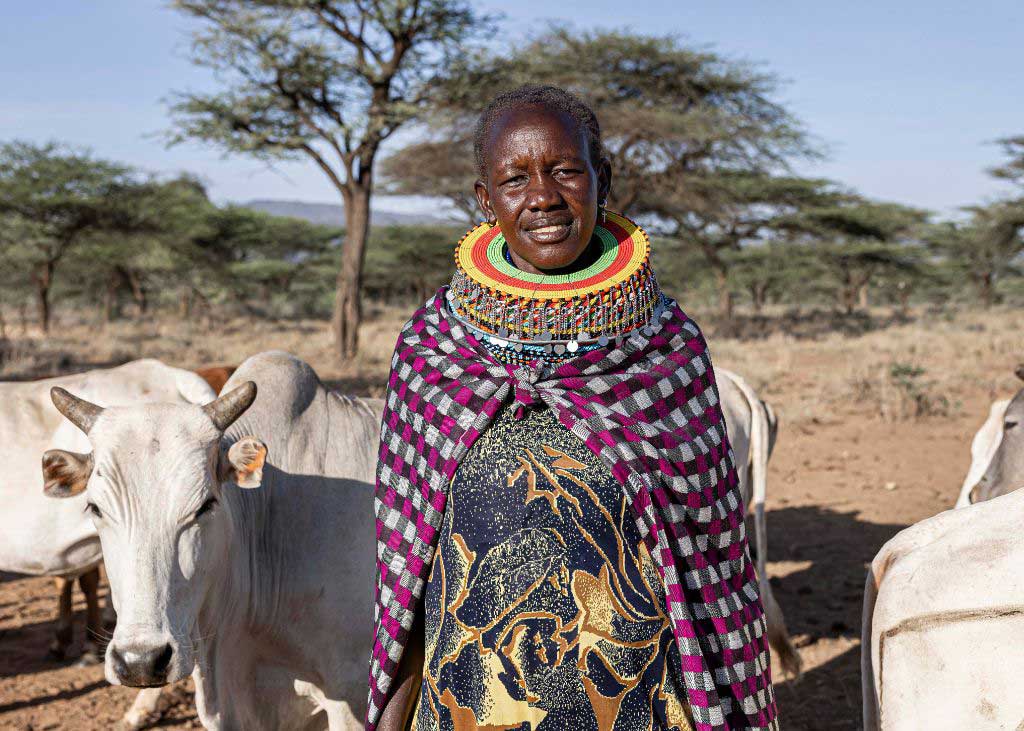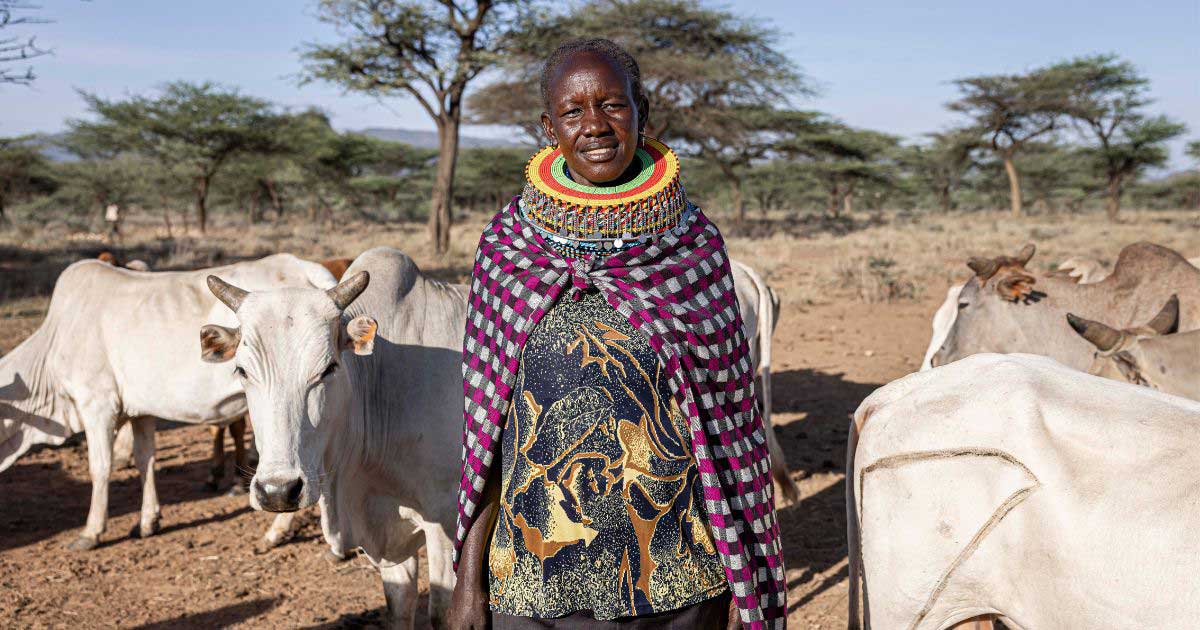
Building Resilience for Kenya’s Livestock Pastoralist Communities
January 29, 2025
In Kenya’s Isiolo County, pastoralist communities face immense challenges from climate change and conflict to rising food costs. For these communities, resilience isn’t just a goal—it’s a lifeline. Through a $1.2 million grant from the Zoetis Foundation to World Food Program USA, the United Nations World Food Programme (WFP) is supporting an innovative model aimed at strengthening livelihoods for livestock farmers and boosting resilience to climate shocks in Kenya and Ethiopia. The model brings together private sector partners and government to promote financial inclusion, including access to livestock insurance, and strengthened veterinary services – reaching the most climate-vulnerable pastoralists.
In Kenya, the Zoetis Foundation-funded grant program is locally referred to as Ufugaji Bora (Improved Animal Husbandry). The initiative is active in Isiolo County (Garbatulla, Merti & Isiolo central sub-counties) as well as Garissa County (Lagdera and Balambala sub-counties) and works with local partners to provide access to essential financial tools and veterinary services for pastoralists, helping them create sustainable income and improve livestock health in areas heavily impacted by drought and climate change.
Since 2023, the program has reached 95,000+ pastoralists, 180+ veterinary service providers and supported the vaccination of 220,000+ livestock.
Promoting Financial Inclusion
Financial stability is vital for pastoralists’ livelihoods. Through Village Agents, who provide access to livestock insurance and are trusted community members certified by WFP and ZepRe (a reinsurance company), pastoralists in Isiolo can gain access to essential financial services. These agents offer subsidized livestock insurance and are trained and certified to onboard pastoralists into the insurance program. Village Agents use their deep understanding of local needs to reach pastoralists in remote areas, raising awareness and increasing registration for livestock insurance and other financial services.
Village Savings and Loans Associations (VSLAs) are local associations that empower pastoralists with financial literacy and provide access to essential financial instruments such as savings, credit, and livestock insurance. In Isiolo and Garissa counties, there are more than 200 VSLAs, with 80% led by women, and each association benefits approximately 25 pastoralists. These groups play a critical role in fostering financial stability, which is vital for the livelihoods of pastoralists, who often use loans to invest in business, farming, education, and to pay for livestock insurance and veterinary services.
VSLAs help pastoralists by pooling members’ financial contributions during regular savings cycles. These pooled funds act as a financial safety net and are available for use by VSLA members for loans, investments in livelihood activities, or to manage emergencies, reducing reliance on external borrowing. For instance, in 2023, a network of 52 VSLAs in Ngaremara ward, Isiolo, collectively reported savings exceeding $350,000 USD. These savings reflect tangible progress in enhancing pastoralists’ financial resilience and their capacity to diversify income sources, enabling them to confront economic and climate-related challenges with greater stability.
Strengthening Veterinary Services
For pastoralist communities, livestock are the backbone of their way of life and economy. Veterinary services, therefore, play a crucial role in helping to ensure livestock are healthy and productive. In Isiolo, it’s estimated that one veterinarian services about 1,000 pastoralists, falling incredibly short of the UN FAO standard of 1:400. WFP, in collaboration with the County Department of Veterinary and Livestock Production, has tackled this challenge by training 30 Community Disease Reporters (CDRs) and connecting pastoralists with certified private sector veterinary service providers. This model bridges the gap between centralized veterinary services and pastoralists in extremely remote areas, providing timely and affordable care while supporting the local economy.
Community Disease Reporters are trained and certified to act as frontline veterinary agents, diagnosing basic livestock health issues and facilitating access to certified veterinarians for more complex cases. This focus on animal health empowers livestock pastoralists with knowledge to help keep their animals healthy. CDR’s are trained members from the community, equipped with phone tablets and motorbikes from WFP. They provide access to veterinary services for pastoralists living in hard-to-reach areas, with no roads, and limited network.
A Sustainable Path Forward
The Zoetis Foundation’s support for WFP’s mission in Isiolo County illustrates the transformative impact of the Ufugaji Bora initiative on pastoralist communities. Through this work, WFP and the Zoetis Foundation are paving the way toward a sustainable, resilient future for pastoralists across Kenya and Ethiopia.

The Zoetis Foundation extends heartfelt gratitude to the WFP team, local partners, and the pastoralist communities of Isiolo County for their collaboration. Together, these efforts are building resilience and enhancing livelihoods, helping to ensure that pastoralist communities can confront the climate challenges they face.